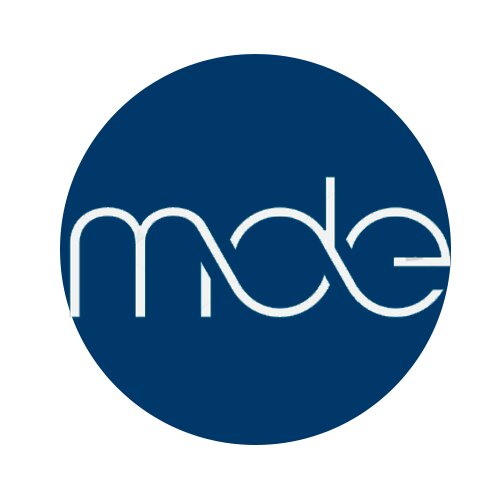Best Domestic Violence Lawyers in Adeje
Share your needs with us, get contacted by law firms.
Free. Takes 2 min.
Free Guide to Hiring a Family Lawyer
List of the best lawyers in Adeje, Spain
About Domestic Violence Law in Adeje, Spain
Domestic violence is a serious legal and social issue in Adeje, a municipality located in the Canary Islands, Spain. The Spanish legal system has robust measures to address domestic violence, providing protection and support to victims and holding perpetrators accountable. Domestic violence in this context includes not only physical abuse, but also psychological, economic, and sexual abuse occurring within family or intimate partner relationships. The local authorities in Adeje work in line with national Spanish laws to ensure the safety of victims and the prosecution of offenders.
Why You May Need a Lawyer
If you or someone you know is experiencing domestic violence in Adeje, seeking legal assistance can be crucial for several reasons. A lawyer can help victims obtain protective orders, file police reports, and navigate the criminal justice process. Legal support is also important for matters involving child custody, divorce, or property division where domestic violence is a factor. Whether you are a victim seeking protection, someone wrongly accused of domestic violence, or a concerned family member, a specialized lawyer will help safeguard your rights, ensure you understand the legal processes, and provide guidance tailored to your unique situation.
Local Laws Overview
Domestic violence cases in Adeje are addressed under Spanish national law, specifically through the Ley Orgánica 1/2004, de Medidas de Protección Integral contra la Violencia de Género (Law 1-2004 on Comprehensive Protection Measures Against Gender Violence). Key aspects of the law include:
- Comprehensive protection for victims, particularly women and children.
- Fast-track judicial procedures, allowing victims to obtain provisional protection orders and immediate safety measures.
- Specialized courts (Juzgados de Violencia sobre la Mujer) dedicated to domestic violence cases.
- Provision of social, psychological, and financial assistance for victims.
- Severe penalties for perpetrators, including prison sentences, restraining orders, and loss of parental rights in severe cases.
- Police and social services cooperation with legal authorities to provide a coordinated response for victims.
Local support services and police in Adeje coordinate with national programs to deliver these legal protections and supports.
Frequently Asked Questions
What constitutes domestic violence under Spanish law?
Domestic violence includes physical violence, threats, psychological or emotional abuse, sexual abuse, and economic control exercised by a partner or family member.
Does the law protect only women?
While the law primarily protects women as the principal victims, men, children, elders, and other vulnerable individuals are also protected under broader criminal and civil statutes.
What should I do if I am a victim of domestic violence in Adeje?
Seek safety immediately. Contact local police (Policía Local or Guardia Civil) or call 016, the national domestic violence helpline. They will provide protection and begin the process of legal intervention.
Can I get a restraining order?
Yes. Victims can request a restraining order (orden de protección) through the court, which can offer immediate protection from the alleged abuser.
How quickly can protective measures be put in place?
Emergency protective measures can often be arranged within 72 hours after a complaint is filed, and sometimes even sooner in urgent cases.
Will my children be protected?
Yes. Special attention is given to the protection of minors, with authorities providing psychological and social assistance and considering custody arrangements that prioritize safety.
What happens to the alleged perpetrator?
If there is sufficient evidence, the perpetrator can be arrested, removed from the home, and subject to a restraining order while the case is investigated and prosecuted.
Will I receive social or financial support?
Victims are eligible for various forms of social and financial assistance, including legal aid, temporary housing, and psychological support through the Integrated Social Services.
Do I need to live in Adeje or be a Spanish citizen to access protection?
No. Anyone residing in or present in Adeje is entitled to protection under Spanish law, regardless of nationality or immigration status.
Can a lawyer help me if I do not speak Spanish?
Yes. There are lawyers and victim support services in Adeje who speak multiple languages, and you have the right to an interpreter during legal proceedings.
Additional Resources
If you or someone you know is affected by domestic violence in Adeje, consider reaching out to the following resources:
- 016 Confidential Domestic Violence Helpline: Free, confidential, and available in several languages.
- Policía Local de Adeje and Guardia Civil: Local law enforcement agencies trained to respond to domestic violence cases.
- Juzgado de Violencia sobre la Mujer: Specialized court in Tenerife addressing domestic violence cases.
- Instituto Canario de Igualdad: Offers information, support, and resources for victims in the Canary Islands.
- Legal Aid Service (Turno de Oficio): Publicly funded legal assistance for those unable to afford private lawyers.
- Red Estatal de Organizaciones de Atención a Víctimas de Violencia de Género: Network of organizations providing psychosocial and legal support.
Next Steps
If you need legal advice or protection from domestic violence in Adeje, begin by:
- Contacting the police or the 016 helpline for immediate safety and guidance.
- Seeking emergency shelter or support services if needed.
- Gathering evidence such as medical records, messages, or witness statements if it is safe to do so.
- Reaching out to a local lawyer with experience in domestic violence cases who can guide you through the legal process, help draft necessary documents, and represent you in court.
- Requesting an interpreter if Spanish is not your first language to ensure you understand your rights and options.
- Utilizing local and national victim support organizations for ongoing emotional, social, and financial assistance.
Taking prompt legal action is essential for your protection and for ensuring the full benefit of the legal and social protections available in Adeje, Spain.
Lawzana helps you find the best lawyers and law firms in Adeje through a curated and pre-screened list of qualified legal professionals. Our platform offers rankings and detailed profiles of attorneys and law firms, allowing you to compare based on practice areas, including Domestic Violence, experience, and client feedback.
Each profile includes a description of the firm's areas of practice, client reviews, team members and partners, year of establishment, spoken languages, office locations, contact information, social media presence, and any published articles or resources. Most firms on our platform speak English and are experienced in both local and international legal matters.
Get a quote from top-rated law firms in Adeje, Spain — quickly, securely, and without unnecessary hassle.
Disclaimer:
The information provided on this page is for general informational purposes only and does not constitute legal advice. While we strive to ensure the accuracy and relevance of the content, legal information may change over time, and interpretations of the law can vary. You should always consult with a qualified legal professional for advice specific to your situation.
We disclaim all liability for actions taken or not taken based on the content of this page. If you believe any information is incorrect or outdated, please contact us, and we will review and update it where appropriate.









